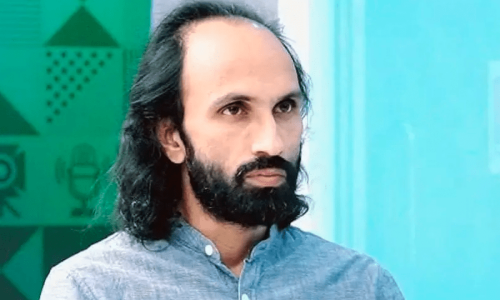ISLAMABAD: Midway into a session on religious minorities and the Constitution, Babar Sattar, a lawyer, boiled down the discussion to a simple question: “Are we an Islamic state, or a Muslim-majority state?”
He was speaking at a session titled ‘Qualified Equality: Minorities in the Constitution of Pakistan’ at the Islamabad Literature Festival on Saturday. The session was based on a research analysis with the same name by Zain Mansoor and Shaqaib Lilla – who accompanied Mr Sattar on the panel alongside researcher Safia Aftab, moderated by Irfan Mufti.
Mr Sattar’s argument was simple: “What is the purpose of the state... Is the state there to enforce religion, or is the state there to facilitate people to live in accordance with their views?”
He said the Constitution is inherently an “unequal document”, and differentiated between individual religious rights, and communal rights. “The Principles of Policy say we will encourage the Islamic way of life.” He said, according to the Constitution, people will not be encouraged to live according to their beliefs, but that the state will encourage an Islamic way of life.
He questioned the setting of a state religion, and the Islamic nature of the state guaranteed by the Constitution, and said that once it is declared that the state has a religious belief system; minorities would always be second grade citizens.
Mr Sattar said this sets up religious minorities as the “other”. He also discussed the “attitude of protection” of minorities, and language used to talk about minorities. He drew a distinction between simply tolerating religious minorities and equality between all citizens irrespective of their religious affiliation.
Discussing his research earlier in the session, Mr Mansoor said that while some articles guarantee equality for all citizens irrespective of religious beliefs, others contradict these provisions. However, he added that the judiciary has been comparatively liberal in its interpretations of Pakistan’s laws regarding religious minorities.
Mr Sattar, however, disagreed, saying the judiciary “has always sided with power”. He acknowledged that the role of the judiciary is limited by the laws it interprets, but said: “Judges wear their belief systems on their sleeves”.
The panellists also focused specifically on the treatment and persecution of Ahmadis, and the institutionalised inequality of Ahmadis due to the 2nd Amendment. Mr Mansoor said laws were made to “scrutinise” Ahmadis. Mr Sattar said: “Ahmadis are still on a separate electoral list... that’s like a killing machine.”
Published in Dawn, April 17th, 2016














































Dear visitor, the comments section is undergoing an overhaul and will return soon.